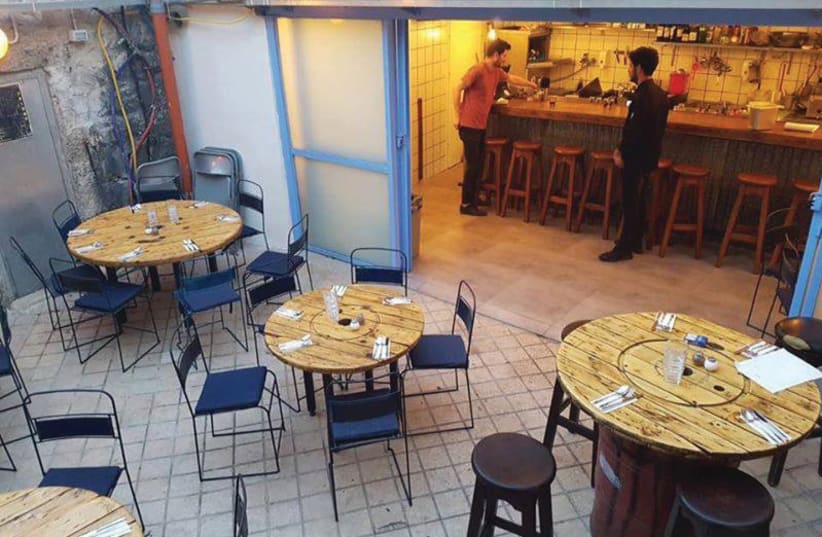As the COVID-19 pandemic grabbed hold of country after country, many restaurants around the world were forced to shut down as governments sought to minimize social interaction. Ailing under the disruption of business, restaurateurs increasingly turned to deliveries to supplement their income, and delivery apps, local and global, came to their aid.
These apps – Uber Eats and DoorDash, to name world leaders in the field – saw a huge rise in revenue. The largest American delivery apps more than doubled their revenue, from $2.5 billion to $5.5 billion, when comparing 2020’s second and third quarters to the same period a year earlier, according to Market Watch.
Yet, while applications like Uber Eats in the US, and Careem NOW and 10bis in the Middle East, allowed restaurants to continue selling, restaurateurs throughout the world struggled with the high commissions taken by these companies. The global issue, which recently brought the New York City Council to cap commissions charged by delivery apps, is felt strongly by restaurants in the Middle East, where delivery apps can charge up to 35% of the bill.Yet with lockdowns and a general desire to avoid gatherings, many chose to accept the delivery services’ conditions, albeit reluctantly.
As an example, Wolt and 10bis, delivery giants in Israel, demand “32%, not including the delivery charge,” Ilan Zagdon, a restaurateur from Israel’s southern metropolis, Beersheba, told The Media Line. “From a 50 shekel [$15.60] deal, they take [approximately] 16.5 shekels in commission.”
To that, Zagdon says, is added around 20 shekels charged for the delivery from thecustomer. Instead of accepting this state of affairs, however, Zagdon decided to create a local, rival site and app named Foodba, which charges a 1% commission for takeaway deals, and 3% from deliveries ordered using the service.His goal, first and foremost, is to save the restaurateurs in Beersheba from high commissions, yet once the app is successfully established locally, Zagdon looks to supply an alternative to businesses country-wide, which may yet prove a challenge even to international giants such as Wolt.
“The model is charging a low, considerate commission from the restaurant owner – all to avoid raising prices. And generally, the model is one in which the restaurateur feels like this is his, that it is a tool intended to connect him with his customer, without being a middleman that takes most of the profit,” he said.
Foodba also promises to transfer the restaurant’s customer data to the restaurant itself. “I’m a restaurateur, not a tech man. I did this all to help restaurant owners, that is what motivates me,” explains Zagdon.
The intention is to minimize the presence and demands of the service, and thus to lower its prices. The app’s revenue will go toward maintaining and developing this lean intermediary.
The service currently boasts 50 local restaurants, with 20 waiting in line to join, and while businesses from other cities in Israel have approached Zagdon, he has so far declined to branch out. Once he feels that it is well established in his hometown, the alternative app will easily grow in other locations using an automated signup service forrestaurants, he explained.
Attempts at solving the issue in the region, however, have not come only from the bottom up. Global transport company Careem, a subsidiary of Uber, runs a regional food delivery service named Careem NOW. In February 2021, the service declared that it would be replacing its percentage-based model with a set monthly fee.
In an opinion piece published by Entrepreneur magazine, Careem CEO Mudassir Sheikha explained that at first, the commission fees seemed reasonable compared to the value offered by the apps. Restaurants previously limited to a “hyper-local market” could reach a much wider clientele.
Yet, Sheikha notes, “here is where restaurants felt the pinch: The larger the order they received, the more they paid in commission fees, even though the services we provided remained largely the same. This meant that restaurants in our region were caught in a Catch-22 − heavily reliant on aggregators to stay afloat, but unable to retain value dueto high commission fees.”
In an interview with CNBC, Sheikha explained that the model may prove a win-win solution. If Careem NOW’s services are embraced by a growing number of restaurants, the larger volume will cover – and possibly top – the loss created by the lower service fees.
Tamir Ben-Shahar, CEO of Czamanski & Ben Shahar, an Israeli consulting firm, is a dining industry expert who has researched the delivery services market.
“The dining industry is the most dangerous industry there is. … 35% of the dining businesses don’t survive their first five years,” Ben-Shahar told The Media Line. “On top of this, in the last two, three years, a new ‘noose’ has been added called Wolt and company, that lower profits and increase the risk in the industry. A different solution is a must. Either the prices of all the products will have to go up so that there will be … [a margin] to take from, or the percentage taken by Wolt and Co. will have to go down, or a different actor could enter [the market], one that is lean, sophisticated and efficient.”
Both Foodba’s and Careem NOW’s models may prove themselves as workable solutions. What matters “ultimately is the price paid by the customer and what is left for the restaurateur at the end of the day,” Ben-Shahar explained. These factors, together with the profitability of the delivery service, will dictate whether new players in the industry looking to drive change will be successful.

